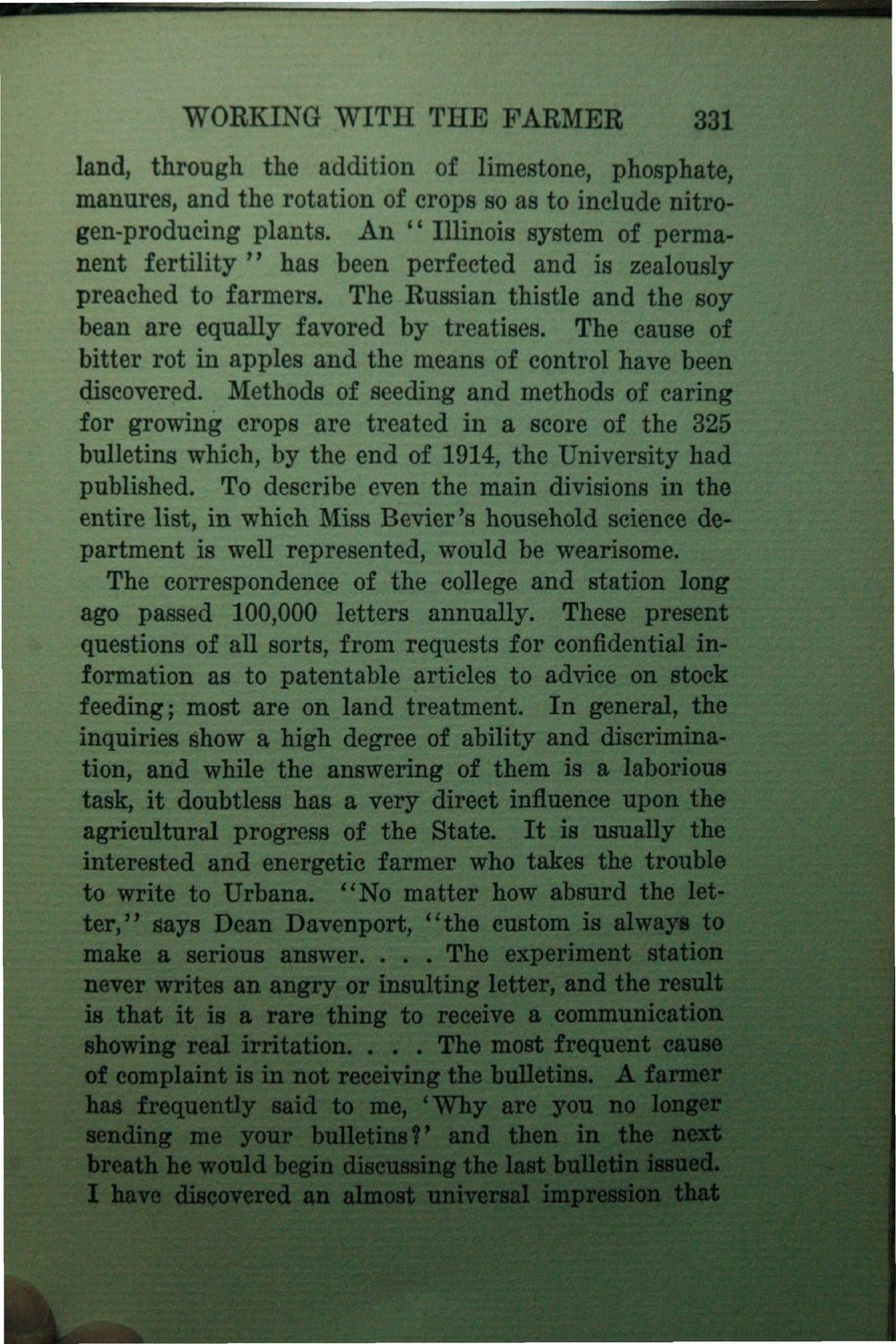| |
| |
Caption: Book - History of the University (Nevins)
This is a reduced-resolution page image for fast online browsing.

EXTRACTED TEXT FROM PAGE:
WORKING WITH THE FARMER 331 land, through the addition of limestone, phosphate, manures, and the rotation of crops so as to include nitrogen-producing plants. An " Illinois system of permanent fertility " has been perfected and is zealously preached to farmers. The Russian thistle and the soy bean are equally favored by treatises. The cause of bitter rot in apples and the means of control have been discovered. Methods of seeding and methods of caring for growing crops are treated in a score of the 325 bulletins which, by the end of 1914, the University had published. To describe even the main divisions in the entire list, in which Miss Bevier's household science department is well represented, would be wearisome. The correspondence of the college and station long ago passed 100,000 letters annually. These present questions of all sorts, from requests for confidential information as to patentable articles to advice on stock feeding; most are on land treatment. In general, the inquiries show a high degree of ability and discrimination, and while the answering of them is a laborious task, it doubtless has a very direct influence upon the agricultural progress of the State. It is usually the interested and energetic farmer who takes the trouble to write to Urbana.||"No matter how absurd the letter,' ' says Dean Davenport, "the custom is always to make a serious answer. i|* . The experiment station never writes an angry or insulting letter, and the result is that it is a rare thing to receive a communication showing real irritation. .|jjfc.: The most frequent cause of complaint is in not receiving the bulletins. A farmer has frequently said to me, 'Why are you no longer sending me your bulletins?' and then in the next breath he would begin discussing the last bulletin issued. I have discovered an almost universal impression that .
| |